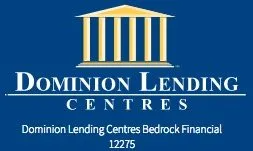How to Not Qualify for a Mortgage

If you have no desire at all to qualify for a mortgage, here are some great ways to make sure you don’t accidentally end up buying a house and taking out a mortgage to do so.
One of the best ways to ensure you won’t qualify for a mortgage is to be unemployed. Yep, banks hate lending money to unemployed people! Okay, so you have a job. Well, that’s okay, you can always unexpectedly quit your job just as you are trying to arrange financing! Even if you are making a lateral move, or taking a better job than the one you have now, that’s cool… any change in employment status while you are looking to get a mortgage will most likely wreck your chances of getting a mortgage for a while. This is because lenders want to see stability; they want to know that you have been in your current position for some time, that you are past probation, and that everything is working out well. By changing jobs right when you are looking to buy a property, you won’t install the lender with confidence, and they probably won’t give you a mortgage. Mission accomplished.
Don’t wanna buy a house? Well, then it’s best you don’t save any money. Better yet, you should probably borrow as much money on credit as you can. One of the main qualification points on a mortgage is called your debt-service ratio. Simply put, the more money you owe in consumer debt, the less money you will qualify to borrow on a mortgage, because your ratio of income compared to your debt is higher when you owe more money. Consider this permission to go and finance a Harley-Davidson. Do it, right now. Not a big fan of motorcycles? That’s cool; a Ford 150 should do the trick nicely. The key here is to make sure you add as much monthly payment as you can. The bigger the payment, the better.
But let’s say that unfortunately your debt-service ratios are in line, you have been able to save up the necessary 5% down payment, and you are on your way to buying a house. What do you do? Ugly documentation! A great way to make sure your lender feels uncomfortable is to have really terrible bank statements. Typically when proving your down payment, the lender will require 90 days’ history of your account(s), with your name on the statement, showing that you have accumulated the down payment over time. Want to really mess things up? Make sure there are lots of deposits over $1000 that can’t be substantiated. This will look like money laundering. If that doesn’t work, you can always black out your “personal information.” Just use a black Sharpie and make your bank statements look like a classified FBI document. Lenders hate that!
So you’ve got a great job and lots of money… don’t panic, you can still absolutely wreck your chances of qualifying for a mortgage. Just don’t pay any of your bills on time. Seriously, borrow lots of money, and then stop paying! Boom. Why would any lender want to lend you money when you have a great track record of not paying back any of the money you borrow? Now, if this feels morally wrong, okay, here is an ethical way to wreck your credit. Don’t pay that cell phone bill out of principle. We’ve all been there — roaming charges, extra data charges that the cell company added on your bill… choose not to pay this on principle. This is a great way to sink your chances of getting a mortgage, I mean, how are you supposed to know that some collections (like cell phones) will show up on your credit report?
Last, if you want to make sure you never get financing, insist on buying the worst house in a bad neighbourhood. You see, the property you are looking to buy is very important to the lender. If they lend you the money to buy it and you stop making the payments, they will be forced to repossess and sell it. They are going to make sure they can recoup their initial investment. So, a “handyman special, fixer upper, with lots of potential” is a great option. As everyone knows, those words are code for “a giant dump.” Bonus points if you get those terms written in the MLS listing. Yep, insist on buying something that is falling apart and stick to it; don’t ever consider buying a solid home in a good neighbourhood.
So there you have it, if you don’t want a mortgage, no problem. Quit your job, borrow lots of money, wreck your credit, and insist on buying a dump.
However, on the off chance you feel homeownership is right for you, contact me anytime, I can help you put a plan in place to avoid these (and many more) mortgage qualification pitfalls.

DAN CAIRD
Mortgage Agent | DLC
RECENT POSTS


DAN CAIRD
Download my Mortgage App
CONTACT ME ANYTIME!
Thank you for contacting me.
I will get back to you as soon as possible
Please try again later
Dan Caird. All Rights Reserved | Dominion Lending Centres. Privacy and Content Notice.






